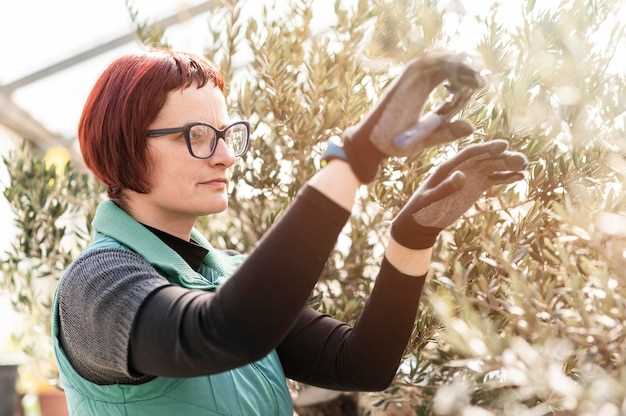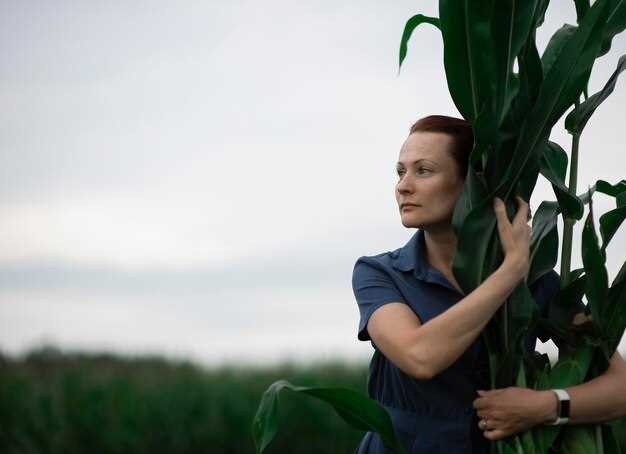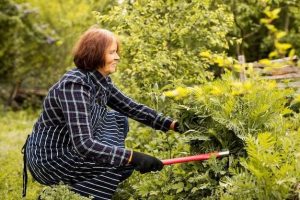
When it comes to the realm of agriculture, there is a force that is often overlooked, yet holds immense potential for growth and innovation. This force is none other than the women who have dedicated their lives to cultivating the land, nurturing crops, and raising livestock. Despite the challenges they face, these women have proven time and again that they are a force to be reckoned with, capable of transforming the agricultural landscape and inspiring others along the way.
Through their unwavering determination and resilience, these women have shattered stereotypes and defied societal expectations. They have embraced the role of nurturers, not only in their families but also in their communities, fostering a sense of unity and empowerment. With their hands in the soil and their hearts in the fields, they have become the backbone of agricultural development, driving progress and ensuring food security for generations to come.
However, the path to success has not been without its obstacles. These women have faced numerous challenges, from limited access to resources and technology to gender-based discrimination and cultural biases. Yet, they have risen above these barriers, armed with a fierce determination to prove their worth and make a lasting impact. Their stories of resilience and triumph serve as a testament to the power of perseverance and the indomitable spirit of women in agriculture.
Through their innovative approaches and entrepreneurial spirit, these women have not only transformed their own lives but have also become beacons of inspiration for others. They have embraced sustainable farming practices, championed organic agriculture, and leveraged technology to optimize productivity. Their success stories serve as a guiding light, illuminating the path for aspiring women in agriculture, showing them that with passion, hard work, and the right support, they too can overcome any obstacle and achieve greatness.
Breaking Barriers: Women Leading the Way in Agriculture
In the realm of agriculture, a remarkable shift is taking place as women step forward to lead and make their mark. They are defying traditional norms and breaking down barriers that have long hindered their participation in this vital industry. Through their resilience, determination, and innovative approaches, these women are paving the way for a more inclusive and diverse agricultural sector.
With their unique perspectives and insights, women are bringing fresh ideas and solutions to the table. They are challenging conventional practices and introducing sustainable farming methods that prioritize environmental stewardship. By embracing technology and harnessing its power, they are revolutionizing the way crops are grown, livestock is managed, and resources are utilized.
Women leaders in agriculture are not only driving economic growth but also fostering social change. They are empowering rural communities by creating employment opportunities and promoting education and skill development. By championing gender equality and advocating for women’s rights, they are inspiring a new generation of female farmers and entrepreneurs.
- Breaking through gender stereotypes, women are assuming leadership roles in agricultural organizations and institutions. They are spearheading initiatives that address the specific challenges faced by women in the industry, such as access to land, credit, and markets.
- Through networking and collaboration, women are forming strong alliances and support systems. They are sharing knowledge, experiences, and best practices, creating a collective voice that amplifies their impact and influence.
- Women-led agricultural enterprises are flourishing, contributing to food security and economic stability. They are diversifying agricultural production, introducing value-added products, and expanding market opportunities.
As women continue to break barriers and lead the way in agriculture, it is essential to recognize their contributions and provide them with the necessary support and resources. By fostering an environment that promotes gender equality and inclusivity, we can harness the full potential of women in agriculture and create a more sustainable and prosperous future for all.
From Seeds to Success: Women Farmers Making a Difference
Exploring the remarkable journeys of female farmers who have transformed the agricultural landscape through their dedication and innovation.
Breaking Barriers and Cultivating Change
Within the realm of agriculture, a group of exceptional women have emerged as catalysts for change, defying societal norms and overcoming obstacles to make a lasting impact. These trailblazers have not only embraced the challenges of farming but have also harnessed their skills and knowledge to revolutionize the industry. Through their unwavering determination and resilience, they have paved the way for a more inclusive and sustainable future.
Nurturing Growth and Empowering Communities
These visionary women farmers have not only achieved personal success but have also uplifted their communities by creating opportunities for others. By sharing their expertise and providing mentorship, they have empowered aspiring farmers, particularly women, to pursue their dreams and contribute to the agricultural sector. Their dedication to education and community development has not only transformed the lives of individuals but has also led to the overall growth and prosperity of their regions.
Overcoming Challenges: Empowering Women in Male-Dominated Agricultural Industries
In the face of adversity, women in traditionally male-dominated agricultural sectors have been breaking barriers and carving out their own paths towards success. This section explores the remarkable stories of resilience and determination exhibited by these women, as they navigate through the challenges inherent in their chosen fields.
Within industries where men have historically held the majority of positions and decision-making power, women have encountered numerous obstacles. However, they have defied societal expectations and stereotypes, proving that gender should not limit one’s capabilities or opportunities. Through their unwavering commitment and innovative approaches, these women have not only overcome challenges but have also become catalysts for change within their respective industries.
One of the key challenges faced by women in male-dominated agricultural industries is the lack of representation and visibility. Often overlooked and underestimated, these women have had to work twice as hard to gain recognition for their contributions. However, through their perseverance and determination, they have managed to shatter the glass ceiling and emerge as trailblazers, inspiring future generations of women to pursue careers in agriculture.
Another significant hurdle faced by women in these industries is the limited access to resources and opportunities. From securing funding for their ventures to accessing training and education, women have had to navigate a system that has historically favored men. Despite these barriers, they have sought out alternative avenues, such as networking and mentorship programs, to acquire the necessary skills and knowledge to thrive in their chosen fields.
Furthermore, the gender pay gap remains a persistent challenge for women in male-dominated agricultural industries. Despite their equal contributions and achievements, women often find themselves earning less than their male counterparts. However, through advocacy and collective action, these women have been instrumental in raising awareness about this issue and pushing for fair and equitable compensation.
Overcoming these challenges requires not only individual determination but also systemic change. By challenging societal norms and advocating for gender equality, these women are transforming the agricultural landscape and creating a more inclusive and empowering environment for all. Their stories serve as a testament to the power of resilience, innovation, and collaboration in overcoming obstacles and paving the way for a brighter future in male-dominated agricultural industries.
Cultivating Change: Programs and Initiatives Supporting Women in Agriculture
In the realm of agriculture, there is a growing recognition of the need to foster gender equality and provide support for women in this field. This section explores various programs and initiatives that aim to cultivate change and empower women in agriculture.
1. Education and Training: One key aspect of supporting women in agriculture is providing them with access to quality education and training opportunities. By equipping women with the necessary knowledge and skills, they can confidently engage in agricultural practices and contribute to the sector’s growth.
2. Financial Assistance: Financial barriers often hinder women’s participation in agriculture. To address this, several programs offer financial assistance, such as grants, loans, and scholarships, specifically tailored to support women in starting or expanding their agricultural enterprises.
3. Mentorship and Networking: Mentorship programs play a vital role in empowering women in agriculture. These initiatives connect experienced professionals with aspiring women farmers, providing guidance, advice, and networking opportunities to help them overcome challenges and achieve success.
4. Advocacy and Policy Reform: Advocacy groups and organizations work towards influencing policies and regulations that promote gender equality in agriculture. By advocating for fair representation and equal opportunities, these initiatives aim to create an enabling environment for women to thrive in the agricultural sector.
5. Access to Resources: Ensuring women have equal access to resources such as land, credit, technology, and markets is crucial for their success in agriculture. Various programs focus on bridging this gap by providing women with the necessary resources and support to enhance their productivity and profitability.
6. Capacity Building: Capacity-building initiatives focus on enhancing women’s skills, knowledge, and leadership abilities. These programs offer training sessions, workshops, and seminars that empower women to take on leadership roles and actively participate in decision-making processes within the agricultural sector.
7. Recognition and Awards: Recognizing and celebrating the achievements of women in agriculture is essential for inspiring others and promoting gender equality. Awards and recognition programs highlight the contributions and successes of women farmers, encouraging more women to pursue careers in agriculture.
8. International Collaboration: International collaborations and partnerships play a significant role in supporting women in agriculture. By sharing best practices, knowledge, and resources across borders, these initiatives foster global solidarity and contribute to the empowerment of women in the agricultural sector.
Overall, these programs and initiatives are instrumental in cultivating change and creating a more inclusive and equitable agricultural sector. By supporting women in agriculture, we can harness their potential, overcome challenges, and inspire a new generation of successful women farmers.
Inspiring Success Stories: Women Entrepreneurs Thriving in Agricultural Businesses

Highlighting the remarkable achievements of female entrepreneurs in the agricultural sector, this section showcases the inspiring journeys of women who have excelled in their agricultural businesses. These individuals have overcome various obstacles and have emerged as successful leaders in their respective fields.
Through their determination, innovation, and resilience, these women have not only transformed their own lives but have also made significant contributions to the agricultural industry. Their stories serve as a testament to the potential and capabilities of women in the business world, particularly in the agricultural sector.
One such entrepreneur is Sarah Johnson, the founder of a successful organic farm in rural Kansas. Sarah’s passion for sustainable farming practices and her commitment to providing healthy, locally sourced produce have earned her recognition and respect within the industry. Despite facing initial skepticism, Sarah’s dedication and hard work have enabled her to build a thriving business that serves as a model for other aspiring female entrepreneurs.
Another inspiring figure is Maria Rodriguez, a third-generation farmer from Argentina. Maria took over her family’s struggling farm and transformed it into a profitable venture through her innovative approach to crop diversification and market expansion. Her ability to adapt to changing market trends and her unwavering determination have not only revitalized her family’s business but have also inspired other women in her community to pursue agricultural entrepreneurship.
| Name | Country | Business |
|---|---|---|
| Sarah Johnson | United States | Organic Farming |
| Maria Rodriguez | Argentina | Crop Diversification |
These success stories demonstrate the immense potential for women to thrive in agricultural businesses. They serve as a source of inspiration for aspiring female entrepreneurs, encouraging them to pursue their dreams and make a positive impact in the agricultural sector. By sharing these stories, we hope to empower more women to take on leadership roles and contribute to the growth and development of the agricultural industry.
Bridging the Gender Gap: Strategies for Encouraging Women’s Participation in Agriculture
Addressing the disparity between genders in the agricultural sector requires the implementation of effective strategies that promote and support women’s involvement. By fostering an inclusive environment and providing targeted support, we can bridge the gender gap and encourage greater participation of women in agriculture.
1. Promoting Gender Equality: Creating awareness about the importance of gender equality in agriculture is crucial. By highlighting the benefits of women’s participation and challenging traditional gender roles, we can inspire a shift in societal attitudes and norms.
2. Providing Access to Resources: Ensuring equal access to resources such as land, credit, and technology is essential for empowering women in agriculture. By removing barriers and providing training and support, women can overcome challenges and fully utilize their potential.
3. Enhancing Education and Skills Development: Investing in education and skills development programs specifically tailored for women in agriculture can equip them with the necessary knowledge and expertise. This empowers women to take on leadership roles, make informed decisions, and contribute effectively to the sector.
4. Establishing Supportive Networks: Creating networks and platforms that connect women in agriculture can foster collaboration, knowledge sharing, and mentorship opportunities. These networks provide a supportive environment where women can learn from each other’s experiences and gain confidence in their abilities.
5. Recognizing and Celebrating Women’s Contributions: Acknowledging and celebrating the achievements and contributions of women in agriculture is crucial for inspiring others and breaking down gender stereotypes. By highlighting success stories and showcasing role models, we can motivate more women to pursue careers in agriculture.
6. Advocating for Policy Changes: Advocacy plays a vital role in influencing policy changes that promote gender equality in agriculture. By engaging with policymakers and advocating for gender-responsive policies, we can create an enabling environment that supports and encourages women’s participation.
In conclusion, bridging the gender gap in agriculture requires a multi-faceted approach that addresses societal attitudes, provides equal access to resources, enhances education and skills development, establishes supportive networks, celebrates women’s contributions, and advocates for policy changes. By implementing these strategies, we can empower women in agriculture and create a more inclusive and sustainable sector.






